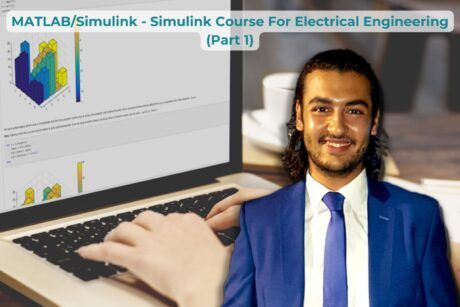Conquer Ubuntu! Our Linux Ubuntu course for beginners covers desktop basics, command line fundamentals, and more. Become a Linux pro today! Read more.
Jerry Banfield started his business online in 2011 while working on his Ph.D. to help people with video game addiction. When he tried to share his new venture with the world, he quickly became frustrated with the limited means of learning how to promote his website and chose to learn by making every mistake himself. In realizing everyone else must be having the same problem, he applied his experience to helping clients in more than twenty countries and then to teaching millions of studen
Buy this course for $199 $10
and keep lifetime access.
Access all courses in our library for only $9/month with All Access Pass
About This Course
Who this course is for:
- Beginners exploring Linux
- Aspiring programmers
- Developers starting with Ubuntu
What you’ll learn:
- Unlock the essentials of Ubuntu Linux
- Navigate the command line like a pro
- Master advanced commands
Requirements:
- Embark on this beginner-friendly course with zero prior knowledge
Ready to Dive into Linux Ubuntu for beginners?
Discover the ins and outs with practical tips and motivation! Whether you’re a Linux newbie or looking to expand your skills from another operating system, this linux ubuntu course is your gateway to mastering Ubuntu Linux.
Meet Your Expert Guide:
Nick, a seasoned Linux administrator and developer with a decade of experience, simplifies complex concepts for easy comprehension. Join Nick as he demonstrates commands in a way that makes you feel confident and ready to elevate your Ubuntu Linux expertise. Become a power user in no time!
Don’t miss out – enroll now and unlock the full potential of the Linux Ubuntu course!
Our Promise to You
By the end of this Ubuntu Linux tutorial for beginners, you will have a clear understanding of how to work with Ubuntu Linux.
10 Day Money Back Guarantee. If you are unsatisfied for any reason, simply contact us and we’ll give you a full refund. No questions asked.
Get started today and learn more about Ubuntu Linux! You might also be interested in the course Ubuntu Linux For Windows On VirtualBox.
Course Curriculum
| Section 1 - Getting Started With Ubuntu Linux | |||
| Introduction To Ubuntu Linux And Getting Started As A Power User! | 00:00:00 | ||
| What Are Linux Distributions? | 00:00:00 | ||
| Section 2 - Installing Ubuntu In A Virtual Machine | |||
| Installing VirtualBox And Setting Up Your Virtual Machine | 00:00:00 | ||
| Installing Ubuntu Linux On Your Virtual Machine (pt.1) | 00:00:00 | ||
| Installing Ubuntu Linux On Your Virtual Machine (pt.2) | 00:00:00 | ||
| Disabling The ISO & First Boot Up | 00:00:00 | ||
| Section 3 - Optimizing Ubuntu For A Better User Experience & Customizing Your Desktop | |||
| Installing Guest Additions For A Better User Experience | 00:00:00 | ||
| Customizing Our Ubuntu Desktop | 00:00:00 | ||
| Installing The Unity Tweak Tool For Ubuntu | 00:00:00 | ||
| Section 4 - Installing Ubuntu Linux Alongside Your Primary Operating System | |||
| Installing Ubuntu Along Side Windows On Your Actual Hard Drive (pt.1) | 00:00:00 | ||
| Installing Ubuntu Along Side Windows On Your Actual Hard Drive (pt.2) | 00:00:00 | ||
| Section 5 - Getting Started With The Linux Command Line | |||
| Getting Started With The Linux Command Line (pt.1) | 00:00:00 | ||
| Getting Started With The Linux Command Line (pt.2) | 00:00:00 | ||
| Administrative Privileges In The Linux Terminal | 00:00:00 | ||
| Using The Package Manager To Install New Applications | 00:00:00 | ||
| Searching Through The Repository To Find New Applications To Download | 00:00:00 | ||
| What If We Want To Install A Package That Is Not In The Repository? No Problem! | 00:00:00 | ||
| Keeping Programs Updated In Ubuntu Linux | 00:00:00 | ||
| File Permissions And Ownership Explained (pt.1) | 00:00:00 | ||
| File Permissions And Ownership Explained (pt.2) | 00:00:00 | ||
| How To Create A New File In The Terminal And Recap | 00:00:00 | ||
| Creating New Directories And Moving Files | 00:00:00 | ||
| Copying, Renaming And Removing Files | 00:00:00 | ||
| Section 6 - Moving On To More Advanced Commands In The Terminal | |||
| Getting Started With The FIND Command And It's Practical Uses (pt.1) | 00:00:00 | ||
| Getting Started With The FIND Command And It's Practical Uses (pt.2) | 00:00:00 | ||
| Getting Started With The FIND Command And It's Practical Uses (pt.3) | 00:00:00 | ||
| Introduction To The GREP Command | 00:00:00 | ||
| Using GREP In Conjunction With The FIND Command | 00:00:00 | ||
| How To Redirect The Output Of A Command | 00:00:00 | ||
| Using The TOP Command To View Applications On Your Linux Machine In Real-time | 00:00:00 | ||
| How To View The Entire List Of Processes And Closing Applications | 00:00:00 | ||
| What Is A Service? | 00:00:00 | ||
| Configuring Services Using The Command Line | 00:00:00 | ||
| Using CRONTABS To Schedule Tasks | 00:00:00 | ||
| What Are The Practical Applications Of CRONTABS? | 00:00:00 | ||
| Using The Man Command To Learn Info About The Programs On Your Linux Machine | 00:00:00 | ||
| Section 7 - Ubuntu Linux Developer Tools: Get Started As A Freelancer Today! | |||
| Eclipse Installation And Set-up | 00:00:00 | ||
| PyCharm Installation And Set-up | 00:00:00 | ||
| PyCharm Installation Problem Resolved | 00:00:00 | ||
| Introduction To GitHub, Installation, And How To Set-up A Repository | 00:00:00 | ||
| How To Pull/Push Information From Our Repository | 00:00:00 | ||
| How To Remove/Ignore Directories In Our Repository | 00:00:00 | ||
| How To Resolve Merge Conflicts From The Command Line | 00:00:00 | ||
| How To Set-up And Manage Branches | 00:00:00 | ||
| Correction From The Previous Lecture | 00:00:00 | ||
| Getting Started With Meteor - Installation And How To Add Packages | 00:00:00 | ||
| Meteor Tutorial Pt. 1: Setting Up Your First Project | 00:00:00 | ||
| Meteor Tutorial Pt. 2: Setting Up Our Router And React Components | 00:00:00 | ||
| Meteor Tutorial Pt. 3: Watch As Our Project Begins To Take Shape! | 00:00:00 | ||
| Meteor Tutorial Pt. 4: Working On The Actual Programming | 00:00:00 | ||
| Meteor Tutorial Pt. 5: Rendering Our Posts | 00:00:00 | ||
| Meteor Tutorial Pt. 6: Putting The Finishing Touches On Our Project | 00:00:00 | ||
| Apache 2, PHP 5 And MySQL Installation | 00:00:00 | ||
| Getting Started With Our Server Configuration | 00:00:00 | ||
| Section 8 - Hosting Our Own Web Server & Deploying Our Meteor App | |||
| What Is The Hosts File On A Linux System? | 00:00:00 | ||
| Deploying Our Meteor App To An Apache 2 Server | 00:00:00 | ||
| Setting Up Our MongoDB NoSQL Database | 00:00:00 | ||
| Creating Our Virtual Host | 00:00:00 | ||
| Using A Shell Script To Set Our Environment Variables | 00:00:00 | ||
| Installing & Configuring PhpMyAdmin | 00:00:00 | ||
| Let's Take A Tour Around The PhpMyAdmin Panel | 00:00:00 | ||
| Creating A Basic Virtual Host | 00:00:00 | ||
| Setting Up A WordPress Installation On Top Of Our Apache 2 Environment | 00:00:00 | ||
| Before We Begin Using WordPress, We Need To Set-up Our Database | 00:00:00 | ||
| Python Installation & Command Line Interface | 00:00:00 | ||
| What Are The Practical Applications Of Python? | 00:00:00 | ||
| Section 9 - Managing Users, Permissions, And Groups | |||
| Adding/Removing Users Through The System Settings Graphical User Interface (GUI) | 00:00:00 | ||
| Adding New Users Through Terminal | 00:00:00 | ||
| How To Delete Users Through Terminal | 00:00:00 | ||
| How To Change An Existing Users Password | 00:00:00 | ||
| Adding Users To A Group And Why This Is Valuable | 00:00:00 | ||
| Section 10 - Linux Network Administration Tools | |||
| Introduction To Networking | 00:00:00 | ||
| How Does The Internet Work? | 00:00:00 | ||
| What Is A Local Network? | 00:00:00 | ||
| Practical Networking Commands (pt.1) | 00:00:00 | ||
| Practical Networking Commands (pt.2) | 00:00:00 | ||
| Using The Netstat Command To Tack Detailed Network Statistics | 00:00:00 | ||
| An In-depth Look At The Linux Hosts File (pt.1) | 00:00:00 | ||
| An In-depth Look At The Linux Hosts File (pt.2) | 00:00:00 | ||
| Using Traceroute To Track The Servers A Request Passes Through | 00:00:00 | ||
| Using Network Mapper To Track The Activity On Your Network (pt.1) | 00:00:00 | ||
| Using Network Mapper To Track The Activity On Your Network (pt.2) | 00:00:00 | ||
| Section 11 - Setting Up A SSH Host On Our Local And Course Wrap-Up | |||
| Using Ssh To Access The Command Line Of A Remote Host | 00:00:00 | ||
| Let's Use Sftp To Transfer Files To And From Machines | 00:00:00 | ||
| Setting Up An Ssh Host On Our Local Machine | 00:00:00 | ||
About This Course
Who this course is for:
- Beginners exploring Linux
- Aspiring programmers
- Developers starting with Ubuntu
What you’ll learn:
- Unlock the essentials of Ubuntu Linux
- Navigate the command line like a pro
- Master advanced commands
Requirements:
- Embark on this beginner-friendly course with zero prior knowledge
Ready to Dive into Linux Ubuntu for beginners?
Discover the ins and outs with practical tips and motivation! Whether you’re a Linux newbie or looking to expand your skills from another operating system, this linux ubuntu course is your gateway to mastering Ubuntu Linux.
Meet Your Expert Guide:
Nick, a seasoned Linux administrator and developer with a decade of experience, simplifies complex concepts for easy comprehension. Join Nick as he demonstrates commands in a way that makes you feel confident and ready to elevate your Ubuntu Linux expertise. Become a power user in no time!
Don’t miss out – enroll now and unlock the full potential of the Linux Ubuntu course!
Our Promise to You
By the end of this Ubuntu Linux tutorial for beginners, you will have a clear understanding of how to work with Ubuntu Linux.
10 Day Money Back Guarantee. If you are unsatisfied for any reason, simply contact us and we’ll give you a full refund. No questions asked.
Get started today and learn more about Ubuntu Linux! You might also be interested in the course Ubuntu Linux For Windows On VirtualBox.
Course Curriculum
| Section 1 - Getting Started With Ubuntu Linux | |||
| Introduction To Ubuntu Linux And Getting Started As A Power User! | 00:00:00 | ||
| What Are Linux Distributions? | 00:00:00 | ||
| Section 2 - Installing Ubuntu In A Virtual Machine | |||
| Installing VirtualBox And Setting Up Your Virtual Machine | 00:00:00 | ||
| Installing Ubuntu Linux On Your Virtual Machine (pt.1) | 00:00:00 | ||
| Installing Ubuntu Linux On Your Virtual Machine (pt.2) | 00:00:00 | ||
| Disabling The ISO & First Boot Up | 00:00:00 | ||
| Section 3 - Optimizing Ubuntu For A Better User Experience & Customizing Your Desktop | |||
| Installing Guest Additions For A Better User Experience | 00:00:00 | ||
| Customizing Our Ubuntu Desktop | 00:00:00 | ||
| Installing The Unity Tweak Tool For Ubuntu | 00:00:00 | ||
| Section 4 - Installing Ubuntu Linux Alongside Your Primary Operating System | |||
| Installing Ubuntu Along Side Windows On Your Actual Hard Drive (pt.1) | 00:00:00 | ||
| Installing Ubuntu Along Side Windows On Your Actual Hard Drive (pt.2) | 00:00:00 | ||
| Section 5 - Getting Started With The Linux Command Line | |||
| Getting Started With The Linux Command Line (pt.1) | 00:00:00 | ||
| Getting Started With The Linux Command Line (pt.2) | 00:00:00 | ||
| Administrative Privileges In The Linux Terminal | 00:00:00 | ||
| Using The Package Manager To Install New Applications | 00:00:00 | ||
| Searching Through The Repository To Find New Applications To Download | 00:00:00 | ||
| What If We Want To Install A Package That Is Not In The Repository? No Problem! | 00:00:00 | ||
| Keeping Programs Updated In Ubuntu Linux | 00:00:00 | ||
| File Permissions And Ownership Explained (pt.1) | 00:00:00 | ||
| File Permissions And Ownership Explained (pt.2) | 00:00:00 | ||
| How To Create A New File In The Terminal And Recap | 00:00:00 | ||
| Creating New Directories And Moving Files | 00:00:00 | ||
| Copying, Renaming And Removing Files | 00:00:00 | ||
| Section 6 - Moving On To More Advanced Commands In The Terminal | |||
| Getting Started With The FIND Command And It's Practical Uses (pt.1) | 00:00:00 | ||
| Getting Started With The FIND Command And It's Practical Uses (pt.2) | 00:00:00 | ||
| Getting Started With The FIND Command And It's Practical Uses (pt.3) | 00:00:00 | ||
| Introduction To The GREP Command | 00:00:00 | ||
| Using GREP In Conjunction With The FIND Command | 00:00:00 | ||
| How To Redirect The Output Of A Command | 00:00:00 | ||
| Using The TOP Command To View Applications On Your Linux Machine In Real-time | 00:00:00 | ||
| How To View The Entire List Of Processes And Closing Applications | 00:00:00 | ||
| What Is A Service? | 00:00:00 | ||
| Configuring Services Using The Command Line | 00:00:00 | ||
| Using CRONTABS To Schedule Tasks | 00:00:00 | ||
| What Are The Practical Applications Of CRONTABS? | 00:00:00 | ||
| Using The Man Command To Learn Info About The Programs On Your Linux Machine | 00:00:00 | ||
| Section 7 - Ubuntu Linux Developer Tools: Get Started As A Freelancer Today! | |||
| Eclipse Installation And Set-up | 00:00:00 | ||
| PyCharm Installation And Set-up | 00:00:00 | ||
| PyCharm Installation Problem Resolved | 00:00:00 | ||
| Introduction To GitHub, Installation, And How To Set-up A Repository | 00:00:00 | ||
| How To Pull/Push Information From Our Repository | 00:00:00 | ||
| How To Remove/Ignore Directories In Our Repository | 00:00:00 | ||
| How To Resolve Merge Conflicts From The Command Line | 00:00:00 | ||
| How To Set-up And Manage Branches | 00:00:00 | ||
| Correction From The Previous Lecture | 00:00:00 | ||
| Getting Started With Meteor - Installation And How To Add Packages | 00:00:00 | ||
| Meteor Tutorial Pt. 1: Setting Up Your First Project | 00:00:00 | ||
| Meteor Tutorial Pt. 2: Setting Up Our Router And React Components | 00:00:00 | ||
| Meteor Tutorial Pt. 3: Watch As Our Project Begins To Take Shape! | 00:00:00 | ||
| Meteor Tutorial Pt. 4: Working On The Actual Programming | 00:00:00 | ||
| Meteor Tutorial Pt. 5: Rendering Our Posts | 00:00:00 | ||
| Meteor Tutorial Pt. 6: Putting The Finishing Touches On Our Project | 00:00:00 | ||
| Apache 2, PHP 5 And MySQL Installation | 00:00:00 | ||
| Getting Started With Our Server Configuration | 00:00:00 | ||
| Section 8 - Hosting Our Own Web Server & Deploying Our Meteor App | |||
| What Is The Hosts File On A Linux System? | 00:00:00 | ||
| Deploying Our Meteor App To An Apache 2 Server | 00:00:00 | ||
| Setting Up Our MongoDB NoSQL Database | 00:00:00 | ||
| Creating Our Virtual Host | 00:00:00 | ||
| Using A Shell Script To Set Our Environment Variables | 00:00:00 | ||
| Installing & Configuring PhpMyAdmin | 00:00:00 | ||
| Let's Take A Tour Around The PhpMyAdmin Panel | 00:00:00 | ||
| Creating A Basic Virtual Host | 00:00:00 | ||
| Setting Up A WordPress Installation On Top Of Our Apache 2 Environment | 00:00:00 | ||
| Before We Begin Using WordPress, We Need To Set-up Our Database | 00:00:00 | ||
| Python Installation & Command Line Interface | 00:00:00 | ||
| What Are The Practical Applications Of Python? | 00:00:00 | ||
| Section 9 - Managing Users, Permissions, And Groups | |||
| Adding/Removing Users Through The System Settings Graphical User Interface (GUI) | 00:00:00 | ||
| Adding New Users Through Terminal | 00:00:00 | ||
| How To Delete Users Through Terminal | 00:00:00 | ||
| How To Change An Existing Users Password | 00:00:00 | ||
| Adding Users To A Group And Why This Is Valuable | 00:00:00 | ||
| Section 10 - Linux Network Administration Tools | |||
| Introduction To Networking | 00:00:00 | ||
| How Does The Internet Work? | 00:00:00 | ||
| What Is A Local Network? | 00:00:00 | ||
| Practical Networking Commands (pt.1) | 00:00:00 | ||
| Practical Networking Commands (pt.2) | 00:00:00 | ||
| Using The Netstat Command To Tack Detailed Network Statistics | 00:00:00 | ||
| An In-depth Look At The Linux Hosts File (pt.1) | 00:00:00 | ||
| An In-depth Look At The Linux Hosts File (pt.2) | 00:00:00 | ||
| Using Traceroute To Track The Servers A Request Passes Through | 00:00:00 | ||
| Using Network Mapper To Track The Activity On Your Network (pt.1) | 00:00:00 | ||
| Using Network Mapper To Track The Activity On Your Network (pt.2) | 00:00:00 | ||
| Section 11 - Setting Up A SSH Host On Our Local And Course Wrap-Up | |||
| Using Ssh To Access The Command Line Of A Remote Host | 00:00:00 | ||
| Let's Use Sftp To Transfer Files To And From Machines | 00:00:00 | ||
| Setting Up An Ssh Host On Our Local Machine | 00:00:00 | ||





Beginner Course
Excellent for a beginner such as myself
Great Basic Linux Course with a lot of extras.....
This was a great basic Linux course with a lot of extras. I have tried several other basic Linux courses prior to this one, and in my opinion, Jerry was extremely in-depth in his teaching while covering a lot of material. In addition solely, in my opinion, what was extremely useful for me being from the US, was his clear pronunciation of the information he presented in the US English language. Prior I had watched/listened to other similar courses (definitely not with this much content), and I would have to say; a lot really has a lot to do with the fact a student can actually understand what is being presented. For me, Jerry covered all the learning bases. Overall extremely pleased with this course.